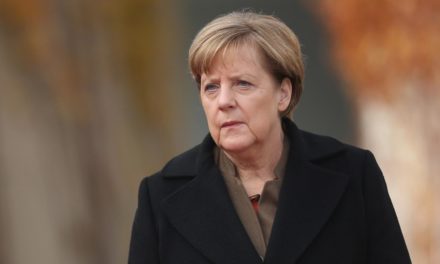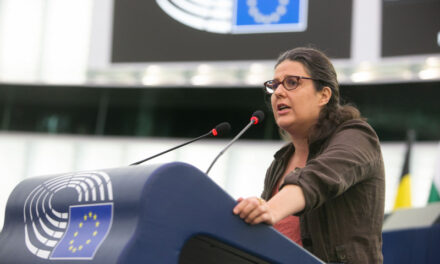As Finland races to join NATO, the crisis in Ukraine risks escalating into a wider European conflict, writes National Interest reporter Mark Episkopos.
Finland's leaders announced on Thursday that they will join the North Atlantic Treaty Organization (NATO) "without delay", a drastic reversal of Helsinki's post-World War II neutrality policy.
"NATO membership would strengthen Finland's security. As a member of NATO, Finland would strengthen the entire defense alliance"
President Sauli Niinisto and Prime Minister Sanna Marin said in a joint statement.
"Finland should immediately apply for NATO membership," the statement added. "We hope that the necessary steps for the decision will be taken in the coming days." And Sweden, according to the news, will soon follow its Scandinavian neighbor.
NATO Secretary General Jens Stoltenberg said in April that Finland and Sweden would be "welcomed" and "quickly" accepted if they indicated their intention to join the alliance. According to NATO officials, the accession process of Finland and Sweden - both countries already boast a high degree of interoperability with NATO's military infrastructure - can take place within weeks.
However, expanding NATO to include Finland and Sweden is a tougher nut to crack than the alliance's leadership hopes. Turkish President Recep Tayyip Erdogan said on Friday that Ankara does not support Helsinki and Stockholm joining NATO.
"We are following the developments concerning Sweden and Finland, but our opinion on the accession is not favorable"
Erdogan said, according to AP.
One of NATO's most militarily and geopolitically significant members, Turkey took a neutral position in the Russian-Ukrainian war in order to become a key player in the peace negotiations between Moscow and Kiev.
Croatian President Zoran Milanović announced earlier this month that he would block the admission of Finland and Sweden to NATO over an unrelated issue related to Bosnia and Herzegovina's election laws. Prime Minister Viktor Orbán still does not allow a glimpse of his papers, but previously he was skeptical about NATO expansion, as well as the excessive sanctions against Russia.
The Kremlin, as expected, condemned Helsinki's decision and raised the possibility of retaliation. "Finland's accession to NATO will cause serious damage to bilateral Russian-Finnish relations," the Russian Foreign Ministry warned in a statement.
"Russia will be forced to take military-technical and other retaliatory measures in order to stop threats to its national security"
- says the announcement, and Putin already hinted at what this answer might be in his previous comments. “We made and implemented the decision to withdraw all our armed forces 1,500 km from Finland's borders... despite the tensions in the Baltic region, we did nothing to cause Finland concern. And by the way, we do this in light of Finland's neutral status. Imagine if Finland joined NATO… it would mean that the Finnish military would no longer be independent or sovereign in the full sense of the word. They would become part of NATO's military infrastructure, which in turn would be located directly opposite the borders of the Russian Federation," Putin said at his 2016 press conference with Finnish President Sauli Niinistö.
"Do you think we would do the same if we kept our forces 1,500 km away? We would respect any decision of the Finnish people...we appreciate Finland's neutral status and respect it, but this issue is not for us to decide,” he added. Putin's comments caused quite a stir; The distance between St. Petersburg - where Russia's Western Military District is located - and the Russian-Finnish border is roughly 400 km, which makes it impossible for the Russian army to withdraw all its troops 1,500 km from Finland. Nevertheless, Putin's 2016 statement reflects one likely outcome of Finland's NATO accession:
the unprecedented strengthening of Russian forces along the Finnish border.
The Vice Chairman of the Russian Security Council and former Russian President Dmitry Medvedev, on the other hand, proposed another option: Russia could deploy nuclear and hypersonic weapons systems in the Baltic region. Lithuania's defense ministry brushed off Moscow's threats, telling reporters that nuclear weapons had "always been kept" in Russia's central European enclave of Kaliningrad. Either way, further deployment of nuclear weapons – and the introduction of more sophisticated nuclear or nuclear-capable systems – will exacerbate current military tensions in the Baltic region.
Dmitry Polyansky, the Russian Federation's deputy representative to the UN, announced the most direct threat to Helsinki and Stockholm so far.
“They [Finland and Sweden] know that the moment they become NATO members, it will trigger a response from Russia. If there are NATO units in these areas, then these areas become potential targets"
- He told. “NATO is extremely hostile to us; enemy, and considers Russia an enemy. This means that Finland and Sweden will suddenly become part of the enemy from neutral countries, and thus will bear the associated risk.
The United States and the United Kingdom actively support Finland and Sweden joining NATO. The efforts of major Western powers to facilitate a new wave of NATO expansion reflect their mission to weaken Russia militarily and isolate it geopolitically, formulated and implemented since the February 24 invasion of Ukraine.
But how might Moscow, which has consistently threatened to use tactical and strategic nuclear weapons, respond if its existential interests are threatened if cornered?
Moscow launched an invasion of Ukraine, partly out of concern over NATO's eastward expansion since the end of the Cold War. However, with the joining of the two Scandinavian countries, the alliance would soon be closer to Russia than ever, foreshadowing the escalation of the Russian-Western conflict from a proxy war in Ukraine to a wider European confrontation with unpredictable and potentially catastrophic consequences.
Featured image: Reuters / Bernadett Szabo













